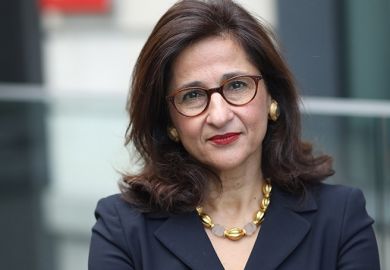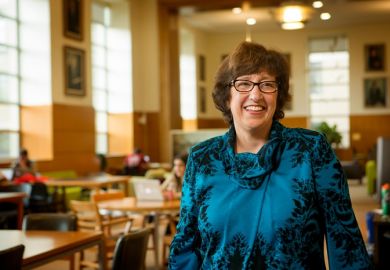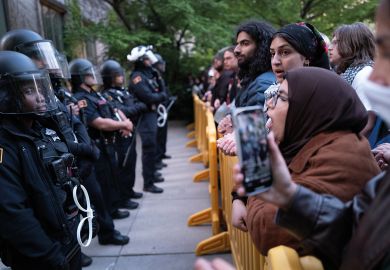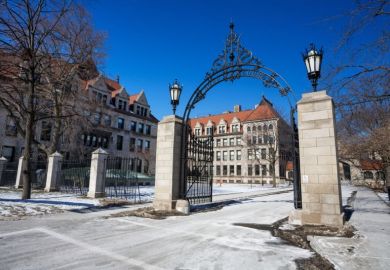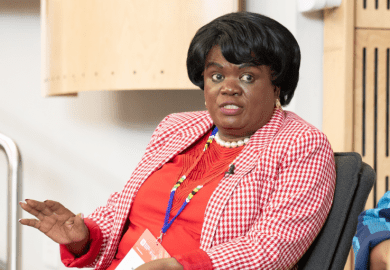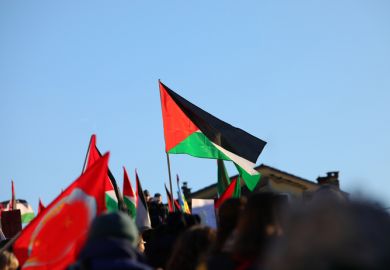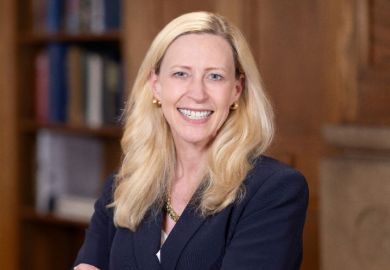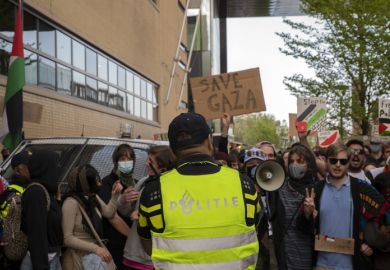The California State University system has pushed out the president of its Sonoma campus after he agreed to work with student demonstrators demanding divestment actions aimed at opposing Israel’s military actions in Gaza.
The Sonoma State University president, Mike Lee, was placed on administrative leave for “insubordination” after he posted a message to his campus community promising to review investments involving Israel and to end any scholarly exchanges with Israel. He later announced his retirement.
“That message was sent without the appropriate approvals,” the chancellor of the 450,000-student CSU system, Mildred García, said in announcing her response to Dr Lee's promises to his university's students.
California State is the nation’s biggest four-year system, and its quick rejection of Dr Lee’s initiative reflects a political environment in which Republican members of Congress have been repeatedly demanding that US colleges and universities harshly punish student efforts to generate sympathy for Palestinians in Israeli-occupied Gaza.
That approach has fuelled 2,500 arrests at dozens of US campuses where students have set up tent encampments to protest against the estimated 35,000 deaths in Israel’s military siege of Gaza.
Dr Lee, a native of Taiwan, had spent decades in the 23-campus CSU system, initially as a marketing professor at Sacramento State University, before moving into administrative positions. In trying to peacefully end the three-week-long encampment at his Sonoma campus, about 50 miles (80 kilometres) north of San Francisco, Dr Lee met with students demanding disinvestment from Israel and later issued the statement promising to review all investments – without any specific promise to end any. The statement also said that all study-abroad programmes involving Israel were terminated, while also saying that Sonoma State doesn’t actually have any.
Student protesters credited their president with taking a “courageous step” in meeting with them, and in drafting “a detailed agreement that put forward a path for SSU to, among other things, have more transparency in their investments, with a future goal of moving away from investing in organisations that support an apartheid state”.
After Dr García ordered Dr Lee’s removal, the students updated their social media post to say, “We Choose ‘Insubordination’”, adding: “We know our history. We know what happened when folks ‘just followed orders’.”
Dr Lee, however, was contrite, saying in his own message to the Sonoma State community that he had acted without the approval of CSU system leaders, and conceding: “In my attempt to find agreement with one group of students, I marginalised other members of our student population and community. I realise the harm that this has caused, and I take full ownership of it.”
Dr García and CSU officials did not identify what rule or policy Dr Lee was believed to have violated at Sonoma, one of CSU’s smallest campuses. But in her statement, the chancellor said she was “deeply concerned” about “the impact the statement has had on the Sonoma State community, and how challenging and painful it will be for many of our students and community members to see and read. The heart and mission of the CSU is to create an inclusive and welcoming place for everyone we serve, not to marginalise one community over another.”
Dr García said ahead of Dr Lee's retirement decision that she and leaders of the CSU board of trustees “are actively reviewing the matter and will provide additional details in the near future”. But Dr Lee’s profile was immediately removed from the Sonoma State website and replaced by that of Nathan Evans, the university’s deputy vice-chancellor for academic and student affairs and chief academic officer, who was appointed by Dr García as Sonoma’s acting president.
The University of California system, meanwhile, is facing a threatened strike by its graduate student workers, upset that system leaders used police force against non-violent student protesters. University of California leaders said that any such job action would be “not labour-related” and therefore illegal.
Register to continue
Why register?
- Registration is free and only takes a moment
- Once registered, you can read 3 articles a month
- Sign up for our newsletter
Subscribe
Or subscribe for unlimited access to:
- Unlimited access to news, views, insights & reviews
- Digital editions
- Digital access to THE’s university and college rankings analysis
Already registered or a current subscriber? Login

